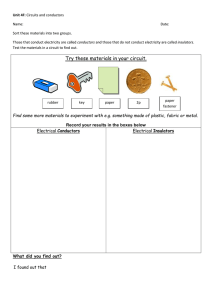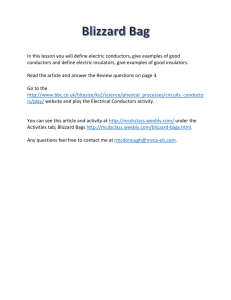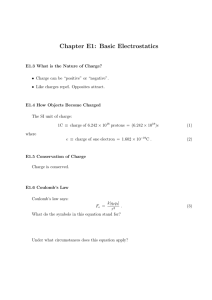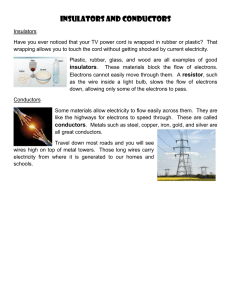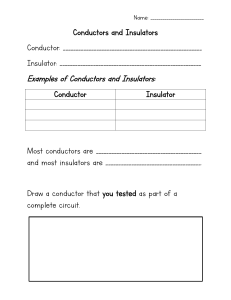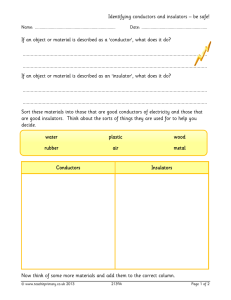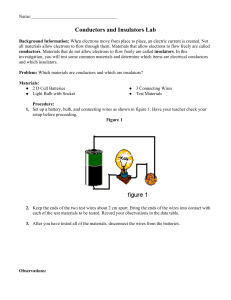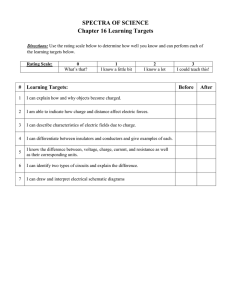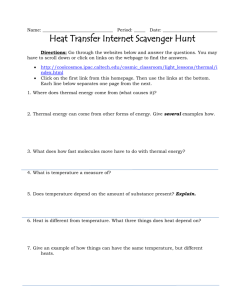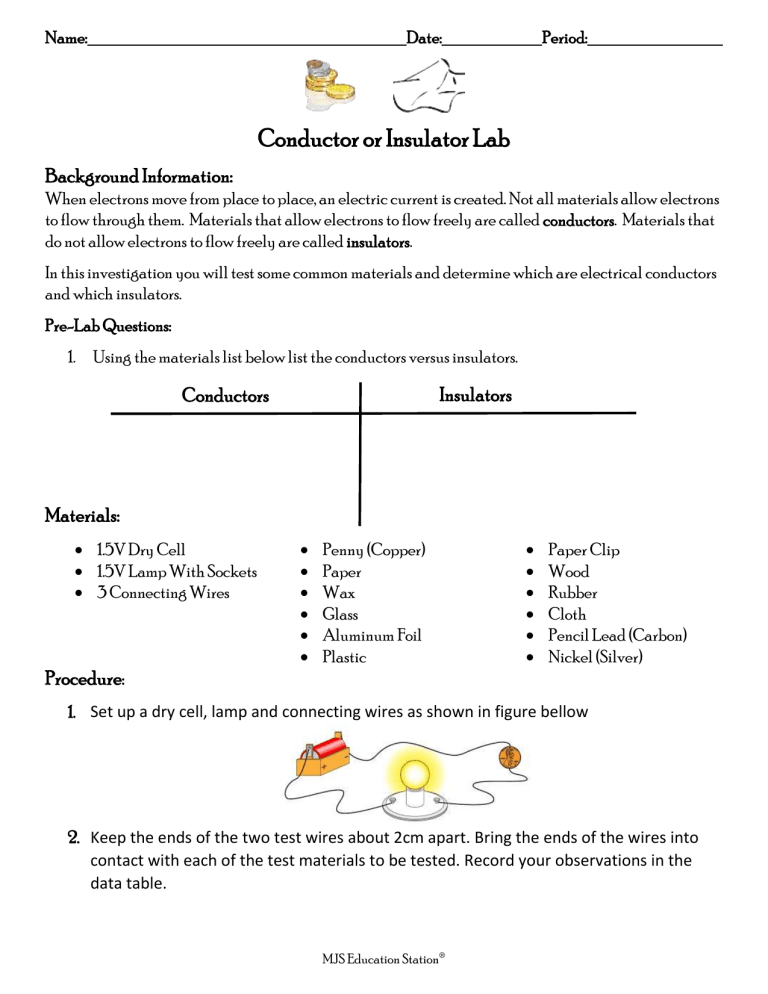
Name: Date: Period: Conductor or Insulator Lab Background Information: When electrons move from place to place, an electric current is created. Not all materials allow electrons to flow through them. Materials that allow electrons to flow freely are called conductors. Materials that do not allow electrons to flow freely are called insulators. In this investigation you will test some common materials and determine which are electrical conductors and which insulators. Pre-Lab Questions: 1. Using the materials list below list the conductors versus insulators. Insulators Conductors Materials: 1.5V Dry Cell 1.5V Lamp With Sockets 3 Connecting Wires Procedure: Penny (Copper) Paper Wax Glass Aluminum Foil Plastic Paper Clip Wood Rubber Cloth Pencil Lead (Carbon) Nickel (Silver) 1. Set up a dry cell, lamp and connecting wires as shown in figure bellow 2. Keep the ends of the two test wires about 2cm apart. Bring the ends of the wires into contact with each of the test materials to be tested. Record your observations in the data table. MJS Education Station® Data Table Material Bright Dim No Light Copper Silver Paper Wax Glass Aluminum Foil Plastic Paper Clip Wood Rubber Cloth Carbon Going Further Strip about 8cm of wood away from one side of a pencil to expose the lead core inside the pencil. Hold the two ends of your test wires as far apart as possible and touch them to the lead core. Slowly move the wires closer together and observe what happens to the lamp. Record your observations explain what you think is happening. MJS Education Station® Analysis 1. Which of the materials you tested are good conductors of electricity? 2. Which of the materials you tested are insulators of electricity? 3. Are metals electrical conductors or insulators? 4. Are nonmetals electrical conductors or insulators? 5. What does this say about the particles of a conductor? 6. Why is most electrical wiring, such as the connecting wires used in the investigation made of copper? Conclusion Questions: 1. Why would civil engineers, or others designing a structure, be very familiar with insulators and conductors? 2. Why do you think saltwater can light a bulb, but distilled water cannot? 3. Given two lengths of metal wire, which one will have the least electrical resistance: one that is short, or one that is long? 4. What is the difference between materials classified as conductors versus those classified as insulators, in the electrical sense of these words? MJS Education Station®
